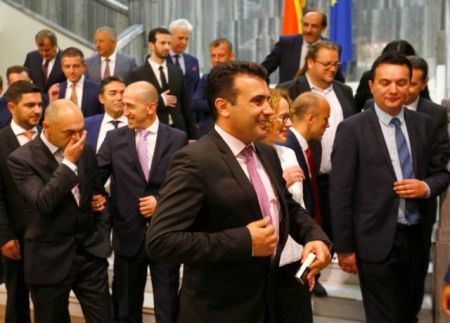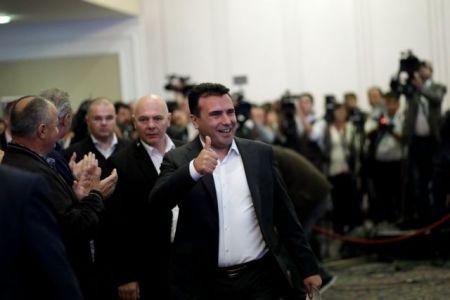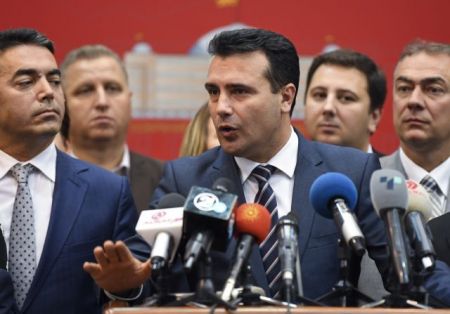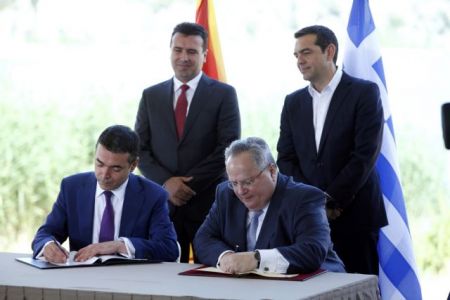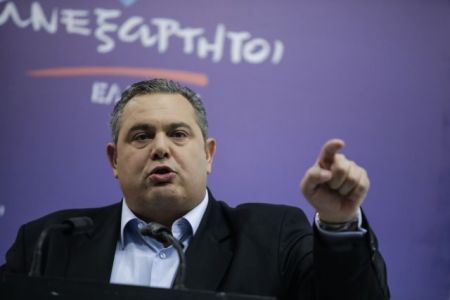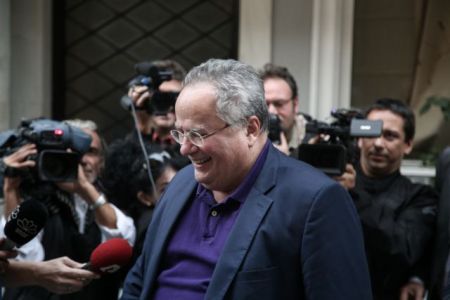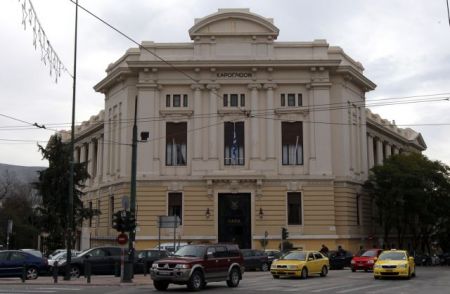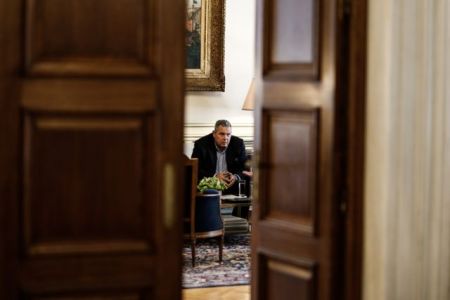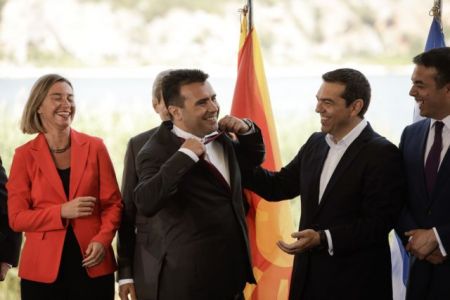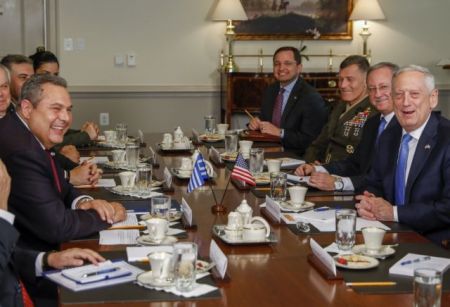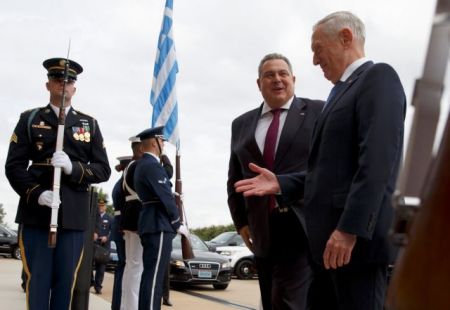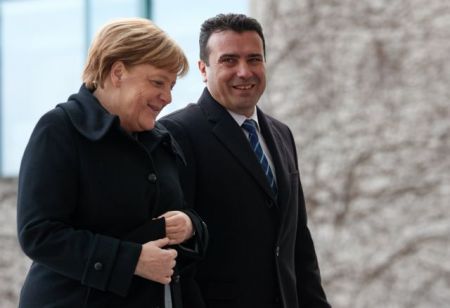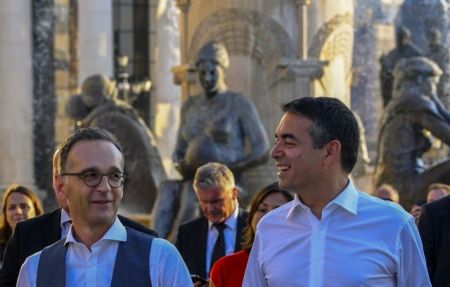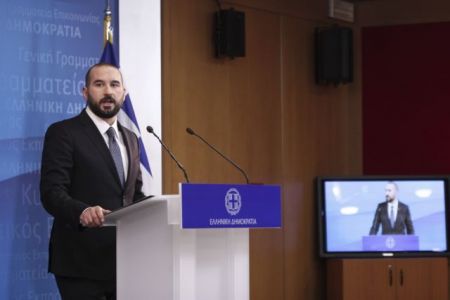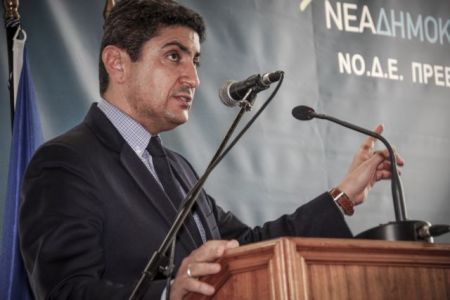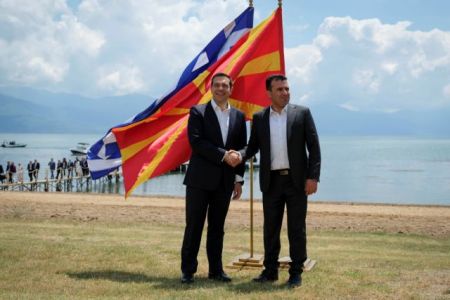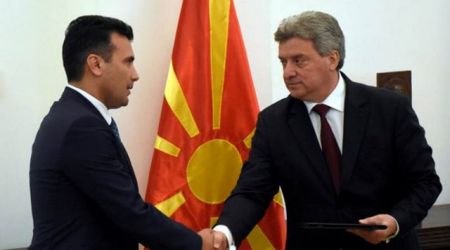Τελευταίες Ειδήσεις
-
Χανιά: Τεταμένο το κλίμα στις φυλακές Αγιάς -Κρατούμενοι αρνούνται να επιστρέψουν στα κελιά τους
-
Αρμάνι Μιλάνο – Ολυμπιακός 83-84: Σημαντικό διπλό για τους «ερυθρόλευκους»
-
Νέα κακοκαιρία από το Σάββατο – Χιόνια και στην Αττική
-
Εθελούσια έξοδος για δικαστές και εισαγγελείς
-
Πούτιν: Ο Μπάιντεν μου πρότεινε το 2021 την αναβολή της ένταξης της Ουκρανίας στο ΝΑΤΟ
-
Αγρίνιο: Αυτοκίνητο «καρφώθηκε» σε επιχείρηση με υγραέριο
-
Ιράν και Χαμάς καταδικάζουν τις επιθέσεις του Ισραήλ κατά των Χούθι
-
ΕΕ: Εξετάζει κυρώσεις κατά του σκιώδους στόλου της Ρωσίας
-
Το μικρό θαύμα του Βελβεντού
-
Κινδύνευσε ο επικεφαλής του ΠΟΥ στην Υεμένη, από την επίθεση του Ισραήλ
-
Αμερικανός αξιωματούχος: Αποδείξεις για την εμπλοκή της Ρωσίας στη συντριβή του αεροσκάφους στο Καζακστάν
-
Στην «πρίζα» το σχέδιο για υβριδικούς σταθμούς στα νησιά
-
Συνάντηση Πατριάρχη Βαρθολομαίου με τον Ερντογάν στην Άγκυρα
-
Το μεγάλο στοίχημα των ελληνικών μετοχών και των κρατικών ομολόγων
-
Τρίκαλα: Μεγάλο μποτιλιάρισμα στο Περτούλι – Ουρές πολλών χιλιομέτρων
-
Υπουργείο Υγείας: Οι κινήσεις για την κάλυψη κενών θέσεων νοσηλευτών στο ΕΣΥ
-
Ισραήλ: Χτύπησε το διεθνές αεροδρόμιο στη Σαναά και άλλους στόχους στην Υεμένη
-
ΝΑΤΟ: Να διερευνηθεί πλήρως η συντριβή του αεροσκάφους στο Καζακαστάν
-
Καλάβρυτα: Άνοιξε ο δρόμος προς το xιονοδρομικό
-
Ρωσία: Έκλεισαν τα 4 αεροδρόμια της Μόσχας – Δεν διευκρινίστηκαν οι λόγοι
-
ΕΥΔΑΠ για την πλημμυρισμένη Ποσειδώνος: Δεν έχουμε καμία αρμοδιότητα για τα όμβρια
-
Black out στη Φινλανδία: Ερευνάται ο ρόλος ενός «ξένου πλοίου» στη βλάβη
-
Κυβερνητικές πηγές του Αζερμπαϊτζάν: Ρωσικός πύραυλος κατέρριψε το αεροπλάνο στο Καζακστάν
-
Συστάσεις στους πολίτες για την κακοκαιρία «Elena» μετά το έκτακτο δελτίο της ΕΜΥ
-
Μόσχα για συντριβή αεροπλάνου: Λάθος να γίνονται εικασίες – Ερευνώνται τα αίτια
